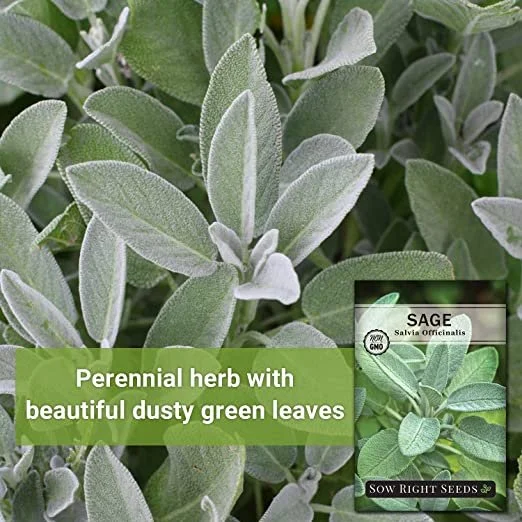Sage Herb
Botanical Aid for Memory Enhancement and Digestive Health
Sage is an herb that has been used for centuries for its medicinal properties. Here's a guide to using Sage as a natural remedy and herbal:
What is Sage?
Sage or Salvia Officinalis is a perennial herb that belongs to the mint family. It is native to the Mediterranean region but is now widely cultivated in many parts of the world, including North America. Sage has a long history of medicinal and culinary use, dating back to ancient times. The plant typically grows to a 30-60 cm height and has gray-green leaves with a soft, velvety texture and a distinctive aroma.
Health Benefits of Sage
Sage has numerous health benefits, including:
Antioxidant Properties
Sage contains antioxidants that help protect the body from damage caused by free radicals.
Anti-inflammatory Properties
Sage has anti-inflammatory properties that may help reduce inflammation in the body and alleviate pain and discomfort.
Cognitive Health
Sage has been found to have a positive effect on cognitive health, including memory and cognitive function.
Digestive Health
Sage can help stimulate digestion and alleviate digestive issues such as bloating, gas, and indigestion.
Oral Health
Sage has antibacterial properties that may help prevent dental cavities and gum disease.
Uses of Sage
Sage can be used in a variety of ways, including:
Culinary Uses
Sage is a popular herb used in cooking, particularly in Mediterranean cuisine.
Aromatherapy
Sage essential oil can be used in aromatherapy to promote relaxation and alleviate stress and anxiety.
Herbal Remedies
Sage can be used in herbal remedies to alleviate a variety of health issues.
Historical Uses
Sage has a long history of use in traditional medicine. It has been used for thousands of years to treat a variety of ailments, including:
digestive issues
sore throats
mental health issues
Scientific Studies on Sage
Some studies have shown promising results for the health benefits of sage. One study found that sage extract improved cognitive function in older adults. Another study found that sage essential oil had antibacterial properties against several types of bacteria.
Growing and Foraging Sage
Sage is relatively easy to grow and can be grown from seeds or cuttings. It prefers well-drained soil and full sun but can also tolerate partial shade.
To forage sage, look for the plant growing in fields, along roadsides, and waste areas. The leaves can be harvested in the spring or summer when they are at their peak.
Precautions and Side Effects
While sage is generally safe when used appropriately, there are some health warnings to be aware of. Sage should not be used by pregnant or breastfeeding women. It may interact with certain medications, including blood-thinning medications and medications for high blood pressure.
Conclusion
Sage is an herb that has been used for centuries for its medicinal properties. Its numerous health benefits include antioxidant and anti-inflammatory properties, cognitive health, digestive health, and oral health. Sage can be used in a variety of ways, including culinary uses, aromatherapy, and herbal remedies. While sage is generally safe when used appropriately, it's important to be aware of any health warnings or precautions.
Ready to learn more?
Check out the herbal academy to become a herbal expert!
Are you ready to get growing? Grab the Medicinal Garden Kit here to get started!





